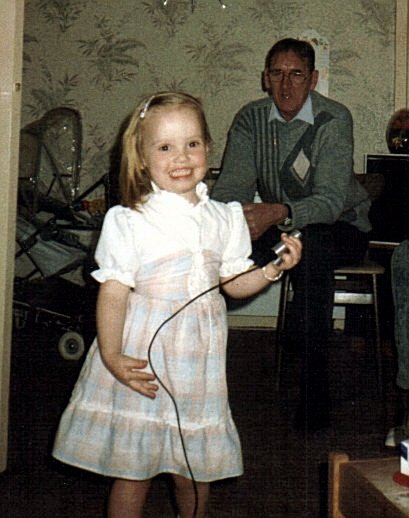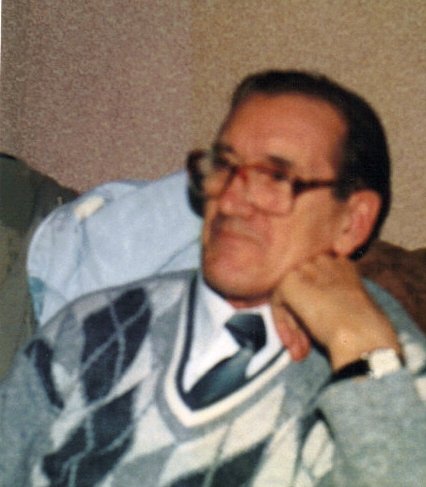Charles Rivington asks the immortal question: Do all dogs go to heaven?
I stated way back in part one that I was going to present this list in no particular order. Having said that I have saved my favourite feature length documentary by my favourite documentarian for last and written so much about it that I’ve had to give it an article in its own right. Oh well…
Gates of Heaven (1978)
Throughout the first two parts of this three-part article and through these four brilliant films, I have touched on some very challenging issues: war, mental illness and suicide, child molestation and the disintegration of a family, the birth of the movies. It therefore might seem somewhat anti-climatic, perhaps even rather disrespectful to have as my final entry a film about pet cemeteries. Surely a documentary about people batty enough to spend large amounts of money giving Fido a proper burial can only ever be mildly amusing (in a sort of ‘ha ha, she thinks he’s people’ kind of a way) or perhaps even just a bit pathetic. Surely, it can’t be one of the greatest and most profound works about mortality, loneliness and the human condition ever made, right?
Wrong. Errol Morris’ Gates of Heaven is, quite simply and quite literally, an incredible film. It’s the sort of film you could watch every day for the rest of your life and it would still be deeply rewarding. Throughout this article I’ve touched on what I believe makes a great documentary and I’ve suggested two things. Firstly, I’ve stated that a great documentary should be impartial and force the audience to form their own judgements

An enthusiastic pet owner.
without telling them what to think. Because of Morris’ unobtrusive style and the fact that he lets his subjects speak for themselves and is neither nor seen nor heard throughout the entire film (Michael Moore could certainly learn from him), Gates of Heaven does this so effectively that that at any given moment of the film one section of the audience might be in tears while another suppresses giggles. Secondly, I have suggested that the great documentary will often take a subject and use it as a springboard to touch upon much broader or challenging themes. Gates of Heaven is a movie about freaking pet cemeteries that deals head on with humankind’s most terrifying and impossible question: that of its own mortality and solitude. This is truly the stuff of genius. It is one of the greatest documentaries of all time, by one of the greatest documentarians of all time and quite frankly one of the greatest films of all time. It’s also one of my favourites.
Gates of Heaven takes as its inspiration the story of the exhumation and transportation of 450 pets from one cemetery to another. This fascinating and odd story is used to shape the film, which is structurally little more than a series of talking heads, into two halves. The first of these focuses on the story of Floyd “Mac” McClure, a paraplegic man who had dreamt of building a pet cemetery after the death of his childhood dog, and uses interviews with pet owners and investors in order to explore how his dream briefly became a reality. Particularly memorable interviewees include Mac’s rival, the owner of the local rendering plant who attempts to defend his unglamorous profession to hilarious effect, and a woman who holds conversations with her dog. Most of Morris’ subjects have their eccentricities, and the film is not short of humour, but he has a unique skill for looking beyond these to the humanity below, frequently unearthing

Devastating
accounts of loss and loneliness. The story of the failure of Mac’s cemetery is a particularly resonant example of these and the tragedy of the matter is that this compassionate man was unable to translate his dream and his passion into a workable business. It is a tragedy that occurs daily but that does not make it any less heart breaking and I imagine that it will resonate with many people, perhaps even more so now than in 1978. The final shot of Mac sitting in his wheelchair under a willow tree, surveying the former site of his failed cemetery is entirely devastating, a perfect, wordless evocation of loneliness and despair and a prime example of Morris’s subtle and unobtrusive early style.

Florence Rasmussen sits on her stoop.
At the film’s centre, acting as a kind of transitional moment between the two distinct halves, is a monologue by an elderly woman named Florence Rasmussen. It is truly one of the most bizarre, moving and hilarious few minutes of any film I have ever seen. Sitting on her stoop outside her house, which overlooks Mac’s cemetery, this fascinating woman recounts her baffling life story in short bursts, constantly contradicting herself as she attempts to explain her troubled relationship with her son. In another’s hands this might have come across as exploitative or condescending and it is abundantly clear that Rasmussen could easily have been mocked as a stereotypical madwoman. Morris’ camera however does not judge, merely records and the entire film is mercifully devoid of any cruel reality tv editing or Louis Theroux-style winks to the audience. Instead Florence is allowed to speak for herself and the result is a frustrating, funny and ultimately sad meditation on one woman’s delusion and loneliness. It is a stunning monologue and one that, as Roger Ebert states, ‘William Faulkner or Mark Twain would have wept with joy to have created.’ And yet, it is reality. It is reality, in its most pure, unedited and unscripted form. Sometimes real life truly is stranger than fiction.

A funeral at Bubbling Wells
The film’s focus then moves to The Bubbling Well Pet Memorial Park, which is run by the Harberts family. Patriarch Cal is a lot more ambitious and business savvy than Mac but shares his compassion for animals and has even built a church in order to celebrate God’s love for pets. His wife Scottie shares this view stating that, ‘God is not going to say, well, you’re walking in on two legs, you can go in. You’re walking in on four legs, we can’t take you.’ Although clearly successful in their business endeavours, the Harbarts family also harbours some unhappiness and this is particularly obvious in their sons Danny and Philip who both left their other lives (college and a job as an insurance salesman) to come back to the family business.

A bereaved couple reminisces in Gates of Heaven
There is one moment from this second half of the film that never fails to move me: a long silent montage of the headstones at Bubbling Well. If I had seen it on it’s own without the benefit of the rest of the film, I admit that it would probably have left me cold and it is true that some of the inscriptions are at first glance rather trite, silly even (‘God spelled backwards is dog’ etc). However after 80 minutes spent in the company of animal lovers and grieving pet owners and hearing them express their loneliness and grief, these inscriptions become a profound articulation of a universal and fundamental need for companionship and love. One of them reads ‘I knew love: I knew this Dog’ while another simply reads ‘For saving my life’. It is clear that there are stories behind each of these inscriptions, heart-breaking, heart-warming stories behind every headstone, stories about what it means to be alive, what it means to love and what it means to experience profound loss. They are stories about what it means to be human. Gates of Heaven merely touches on a few of these stories and in doing so it earns its place as one of the greatest documentary films of all time.
Gates of Heaven is currently available on DVD as part of ‘The Errol Morris Collection’ box set along with Vernon, Florida and The Thin Blue Line, which are both excellent.
 Margaret Thatcher died today after suffering a stroke. She was 87.
Margaret Thatcher died today after suffering a stroke. She was 87.







